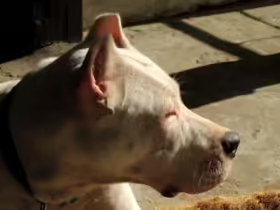Dental health is a crucial yet often overlooked aspect of feline care. Just like in humans, poor dental hygiene in cats can lead to a variety of health issues, including gum disease, tooth loss, and even systemic infections. Understanding how to care for your cat’s teeth and gums is essential for ensuring their overall well-being and longevity. This guide will provide you with comprehensive tips and tricks to keep your cat’s dental health in top shape.
1. Understanding Cat Dental Health
Common Dental Issues in Cats
- Periodontal Disease: The most common dental problem in cats, involving inflammation and infection of the gums and surrounding tissues. It often results from plaque and tartar buildup.
- Tooth Resorption: A condition where the tooth structure is gradually broken down and absorbed by the body, leading to pain and tooth loss.
- Dental Fractures: Cats can fracture their teeth by chewing on hard objects, which may require veterinary intervention.
Signs of Dental Problems
- Bad Breath: Persistent foul odor can indicate dental issues or infections.
- Gum Inflammation: Red, swollen, or bleeding gums are signs of periodontal disease.
- Difficulty Eating: If your cat has trouble chewing or avoids hard food, it may have dental pain.
- Excessive Drooling: Increased saliva production can be a symptom of oral discomfort or disease.
2. Preventive Dental Care
Brushing Your Cat’s Teeth
- Choose the Right Toothbrush and Toothpaste: Use a toothbrush specifically designed for cats and toothpaste formulated for pets. Human toothpaste can be harmful if swallowed.
- Start Slowly: Gradually introduce your cat to brushing by allowing them to taste the toothpaste and getting them accustomed to having their mouth handled.
- Brush Regularly: Aim to brush your cat’s teeth daily, but even a few times a week can be beneficial. Focus on the outer surfaces of the teeth where plaque accumulates.
Dental Chews and Toys
- Dental Chews: Specially designed chews can help reduce plaque and tartar buildup while satisfying your cat’s natural chewing instincts.
- Toys: Interactive toys that promote chewing and play can also aid in maintaining dental health. Ensure they are safe and appropriate for your cat’s size and chewing strength.
Healthy Diet
- Dental Diets: Some commercial cat foods are formulated to promote dental health by reducing plaque and tartar. These diets typically have larger kibble pieces and specific textures.
- Avoid Hard-to-Chew Foods: While dry food can help clean teeth, avoid overly hard or abrasive foods that might damage your cat’s teeth.
3. Regular Veterinary Check-Ups
Professional Dental Cleanings
- Importance of Cleanings: Regular dental check-ups and professional cleanings are crucial for maintaining oral health. Your vet can remove tartar and plaque that brushing alone cannot address.
- Frequency: The frequency of professional cleanings depends on your cat’s dental health. Most cats benefit from an annual dental exam, but some may need more frequent visits.
Dental Examinations
- Routine Exams: During your cat’s annual veterinary visit, your vet will check their teeth and gums for signs of disease or abnormalities.
- Early Detection: Regular exams allow for early detection of dental issues, which can be addressed before they become more serious.
4. At-Home Dental Care
Dental Water Additives
- How They Work: Dental water additives are specially formulated liquids added to your cat’s water bowl to help reduce plaque and freshen breath.
- Usage: Follow the product instructions for the correct dosage and ensure your cat is drinking enough water.
Dental Wipes
- Usage: Dental wipes can be used to clean your cat’s teeth and gums, especially if they are resistant to brushing. They are a convenient alternative for maintaining oral hygiene.
Regular Monitoring
- Home Checks: Regularly inspect your cat’s mouth for any signs of dental problems, such as redness, swelling, or abnormal growths.
- Behavioral Changes: Pay attention to changes in your cat’s eating habits or behavior that may indicate dental discomfort.
5. Addressing Dental Health Concerns
When to See a Vet
- Persistent Bad Breath: If your cat’s bad breath doesn’t improve with at-home care, it could indicate an underlying issue.
- Visible Pain: Signs of pain, such as difficulty eating or reluctance to play, should be evaluated by your vet.
- Oral Lesions: Any unusual bumps, sores, or bleeding in the mouth should be assessed by a professional.
Dental Procedures
- Extractions: In cases of severe dental disease or tooth resorption, tooth extraction may be necessary. Your vet will discuss the best options for your cat’s specific condition.
- Specialized Care: If your cat has advanced dental issues, referral to a veterinary dentist may be required for specialized treatment.
6. Tips for Cats with Special Needs
Senior Cats
- Increased Risk: Older cats are more likely to develop dental issues due to wear and tear, decreased immune function, and other health factors.
- Regular Care: Senior cats may require more frequent dental check-ups and cleanings to manage and prevent dental problems.
Cats with Medical Conditions
- Diabetes or Kidney Disease: Cats with certain medical conditions may have different dental care needs or higher risks for dental issues. Consult with your vet to tailor dental care to your cat’s health status.
7. Creating a Positive Experience
Making Dental Care Enjoyable
- Positive Reinforcement: Use treats and praise to reward your cat for cooperating during dental care routines. This helps create a positive association with brushing and oral care.
- Gradual Introduction: If your cat is anxious about dental care, take small steps and gradually build up their comfort level with the process.
Patience and Persistence
- Consistency: Dental care requires consistency. Regular brushing and check-ups are essential for maintaining good oral health.
- Adaptability: Be patient and adaptable. If one method isn’t working, try a different approach or consult your vet for advice on alternative strategies.
Conclusion
Caring for your cat’s dental health is an essential part of their overall well-being. By incorporating regular brushing, providing dental chews and toys, maintaining a healthy diet, and scheduling routine veterinary check-ups, you can help prevent dental problems and ensure your feline friend has a healthy, happy smile. Remember, dental care is an ongoing commitment, and with the right approach, you can contribute significantly to your cat’s quality of life and longevity.











Leave a Reply